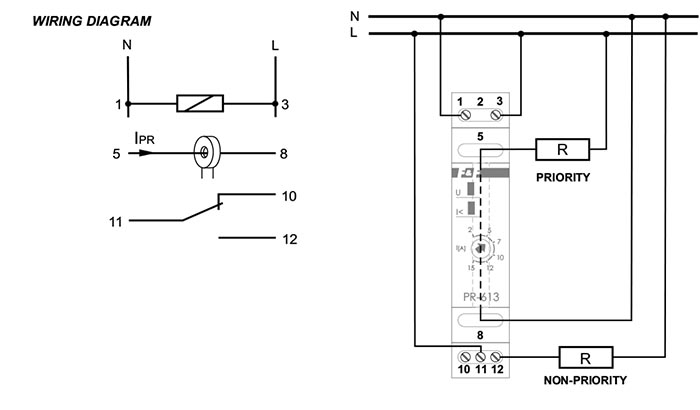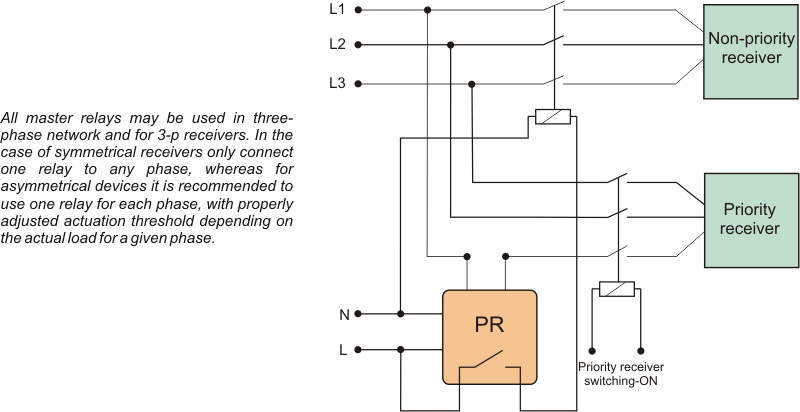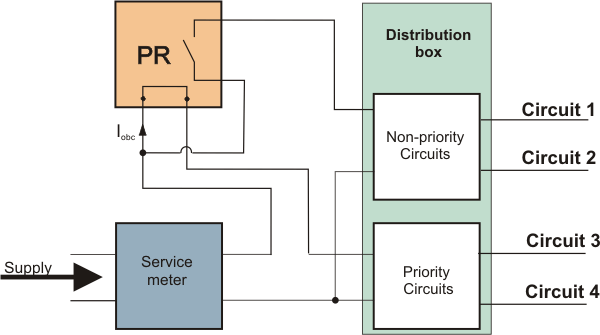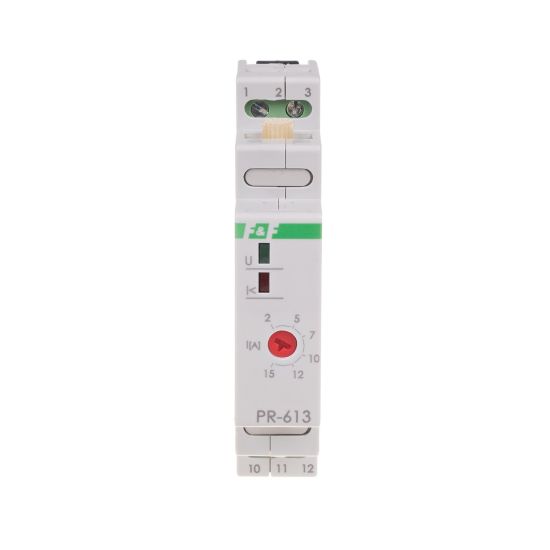





Functioning
The potentiometer sets the value of drawn current (from 2A to 15A; for PR-615: from 4A to 30A) in the priority circuit, above which the receiver cuts off the non-primary circuit. A drop in current consumption in the priority circuit below the set threshold value will result in an automatic activation of the non-priority circuit. In cases where the priority receiver is already activated, the priority relay will prevent the activation of the non-priority receiver.
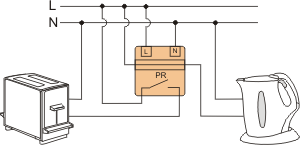
Attention!
Priority receiver current can be higher than 15A. It is only restricted by the receiver's current cord section (galvanic separated from the measurement system) revved through the relay's throughway channel.
